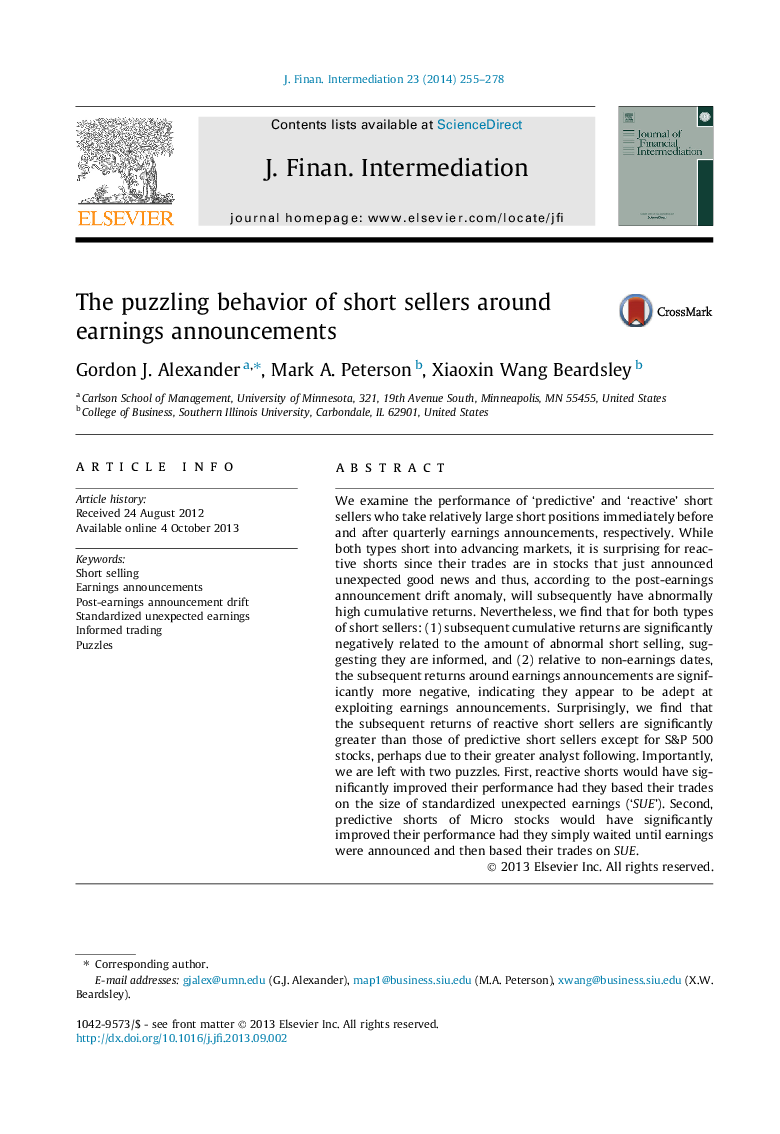| Article ID | Journal | Published Year | Pages | File Type |
|---|---|---|---|---|
| 960802 | Journal of Financial Intermediation | 2014 | 24 Pages |
Abstract
We examine the performance of 'predictive' and 'reactive' short sellers who take relatively large short positions immediately before and after quarterly earnings announcements, respectively. While both types short into advancing markets, it is surprising for reactive shorts since their trades are in stocks that just announced unexpected good news and thus, according to the post-earnings announcement drift anomaly, will subsequently have abnormally high cumulative returns. Nevertheless, we find that for both types of short sellers: (1) subsequent cumulative returns are significantly negatively related to the amount of abnormal short selling, suggesting they are informed, and (2) relative to non-earnings dates, the subsequent returns around earnings announcements are significantly more negative, indicating they appear to be adept at exploiting earnings announcements. Surprisingly, we find that the subsequent returns of reactive short sellers are significantly greater than those of predictive short sellers except for S&P 500 stocks, perhaps due to their greater analyst following. Importantly, we are left with two puzzles. First, reactive shorts would have significantly improved their performance had they based their trades on the size of standardized unexpected earnings ('SUE'). Second, predictive shorts of Micro stocks would have significantly improved their performance had they simply waited until earnings were announced and then based their trades on SUE.
Related Topics
Social Sciences and Humanities
Business, Management and Accounting
Strategy and Management
Authors
Gordon J. Alexander, Mark A. Peterson, Xiaoxin Wang Beardsley,
